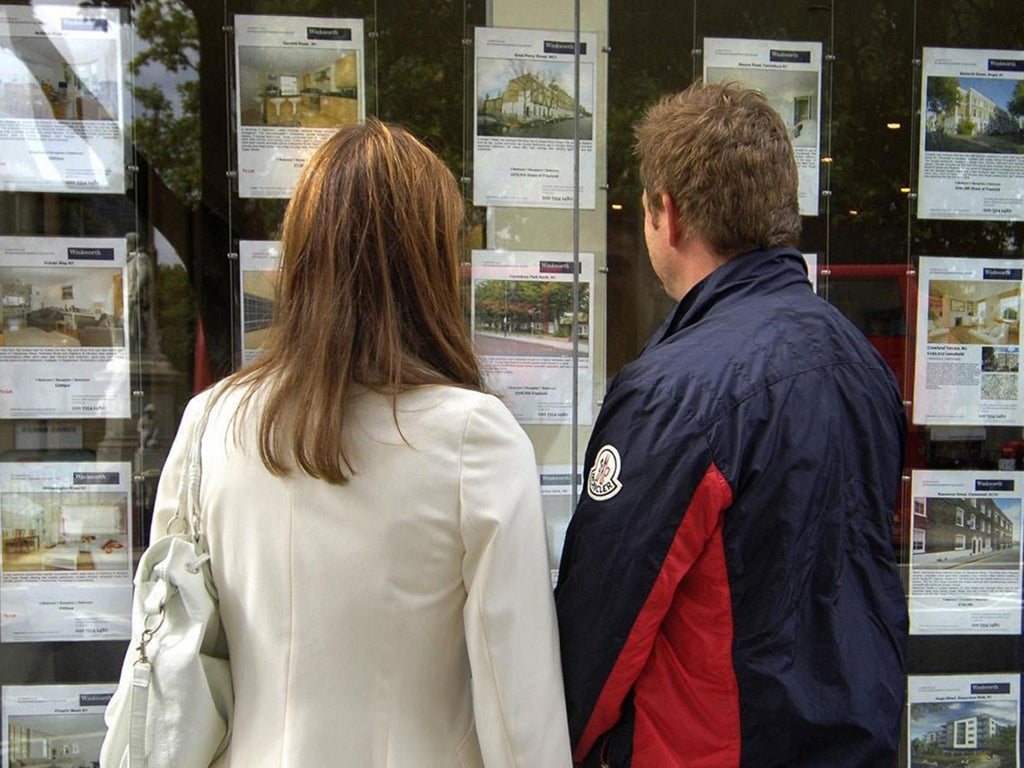'Second-steppers' tap parents for support - again
Younger buyers are revisiting the 'Bank of Mum and Dad' to afford a move up the housing market.

Your support helps us to tell the story
From reproductive rights to climate change to Big Tech, The Independent is on the ground when the story is developing. Whether it's investigating the financials of Elon Musk's pro-Trump PAC or producing our latest documentary, 'The A Word', which shines a light on the American women fighting for reproductive rights, we know how important it is to parse out the facts from the messaging.
At such a critical moment in US history, we need reporters on the ground. Your donation allows us to keep sending journalists to speak to both sides of the story.
The Independent is trusted by Americans across the entire political spectrum. And unlike many other quality news outlets, we choose not to lock Americans out of our reporting and analysis with paywalls. We believe quality journalism should be available to everyone, paid for by those who can afford it.
Your support makes all the difference.The latest trend in property ownership reveals children are going back to the "Bank of Mum and Dad" for a second time in a bid to beat a property market that is still rising.
One in six so-called "second-steppers", those looking to sell their first home and move up the market, are turning to parental help as they try to plug the estimated £41,000 gap between the value of their first and second homes, Lloyds TSB has found – almost 200 per cent up from the £14,000 required to make a similar move 10 years ago.
Most hopeful second-steppers believe cash concerns will impact on the purchase of their new house, having failed to save enough to cover the jump – typically from a flat or terraced house to a semi-detached property worth an average of £189,312. And property prices continue to rise – up 0.5 per cent in May, according to new figures from Halifax.
"We already know that second-steppers face a number of tough challenges," said Stephen Noakes, mortgage director for Lloyds TSB.
"In many ways they have been the hardest hit by the subdued housing market, so it is unsurprising that they are struggling to fund the gap needed to trade up to their second home.
"To achieve a sustainable housing market we need to see movement throughout the market. If second-steppers get stuck on the first rung, movement at the bottom half of the ladder comes to a standstill."
"Today's second-steppers are often those who bought their property at the top of the market and with the possibility of a high loan to value mortgage," said Ray Boulger, senior technical manager at John Charcol.
"They now find that the equity growth they expected hasn't occurred and they are facing a shortfall as they now look for family houses rather than starter homes.
"It may be a good opportunity for families to work together, as parents or grandparents with cash on deposit could gain more from lending it to their children and earning a better return in interest, bearing in mind tax implications, than they would with a high street bank.
"In general, individual families may be happy to help, but the knock-on effect could be a greater social divide as those parents who own their own property are probably more comfortable in helping their children get further up the ladder."
But almost half of first-time buyers had already received an average of almost £13,000 in financial help for the deposit on their first home, and the news comes on the back of worrying figures which show that the number of older people owing money has risen sharply in the last year.
Around 1.8 million pensioners live in poverty according to Age UK, and now one-in-five people aged 60 and over have said they owed money on a mortgage, credit card or loan. More than one-in-10 had to borrow money to pay their rent or mortgage.
"It is extremely worrying that such a high number of older people report having debts and have had to borrow money just to keep a roof over their heads," said Michelle Mitchell, charity director general at Age UK.
"Most older people live on a relatively small income so making debt repayments can be a worry."
Join our commenting forum
Join thought-provoking conversations, follow other Independent readers and see their replies
0Comments